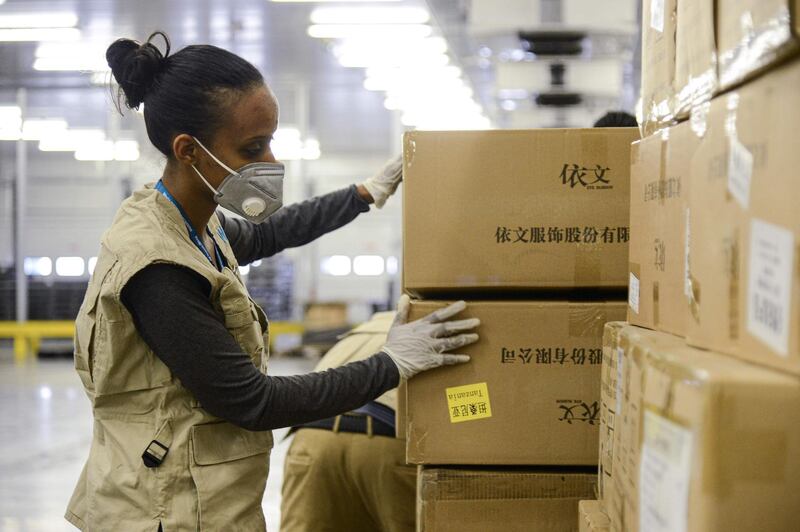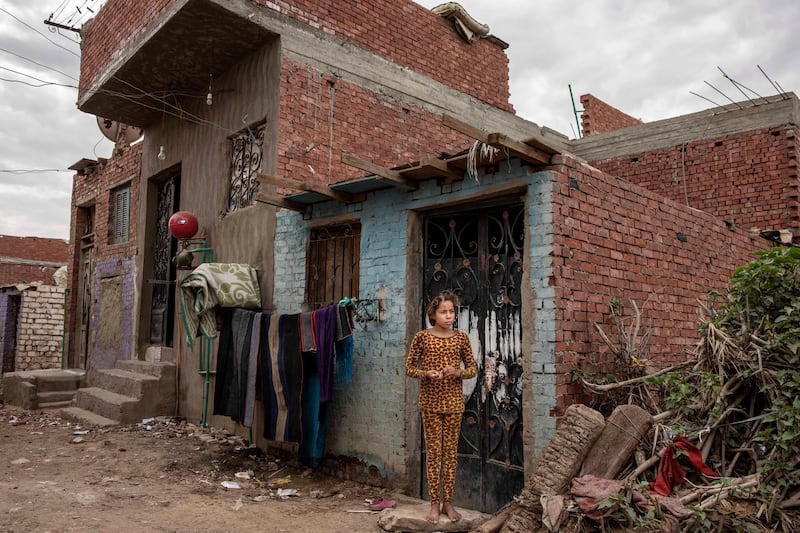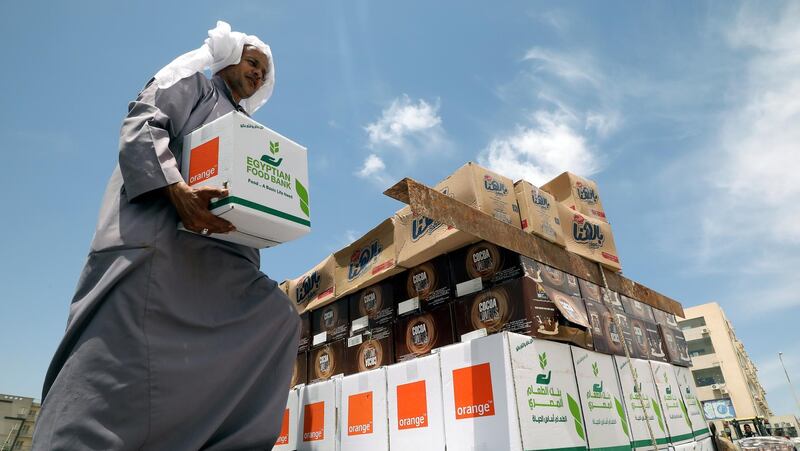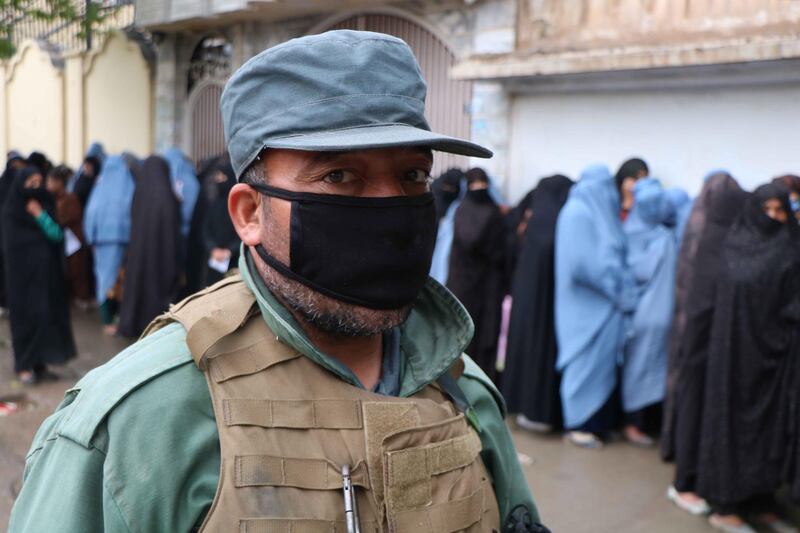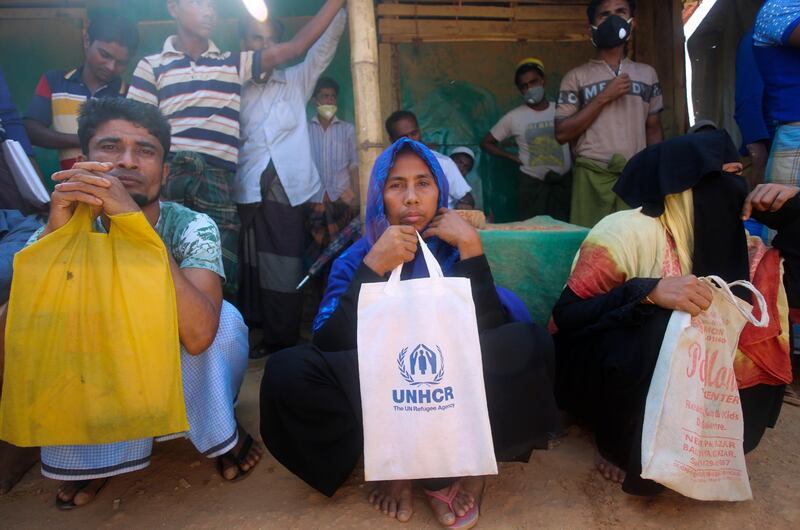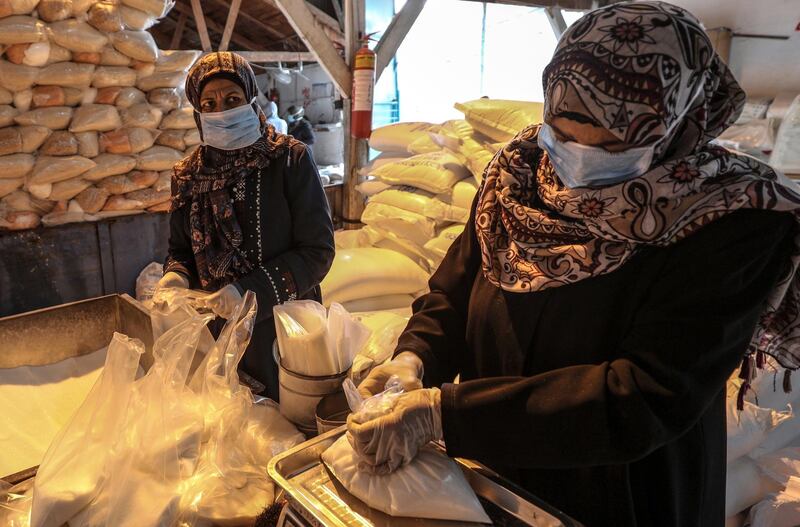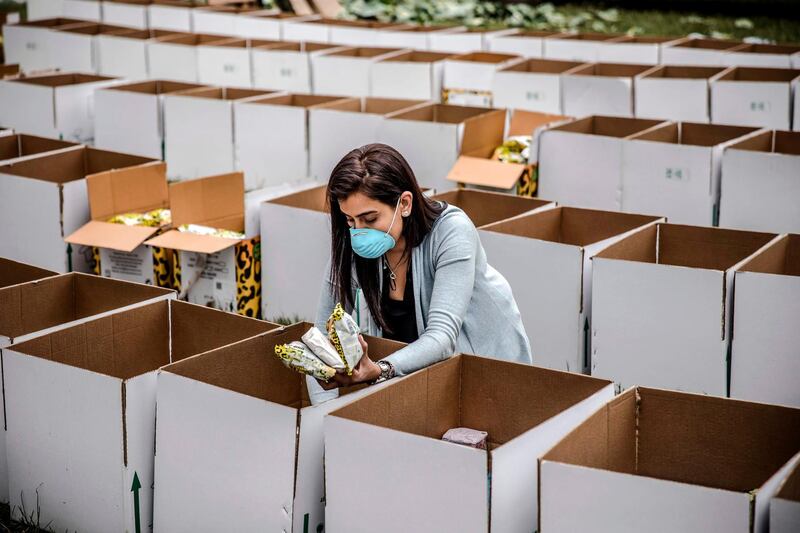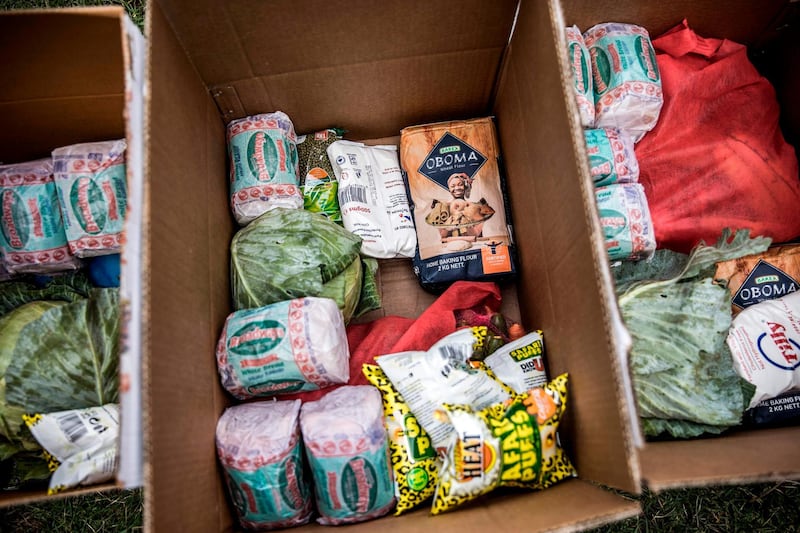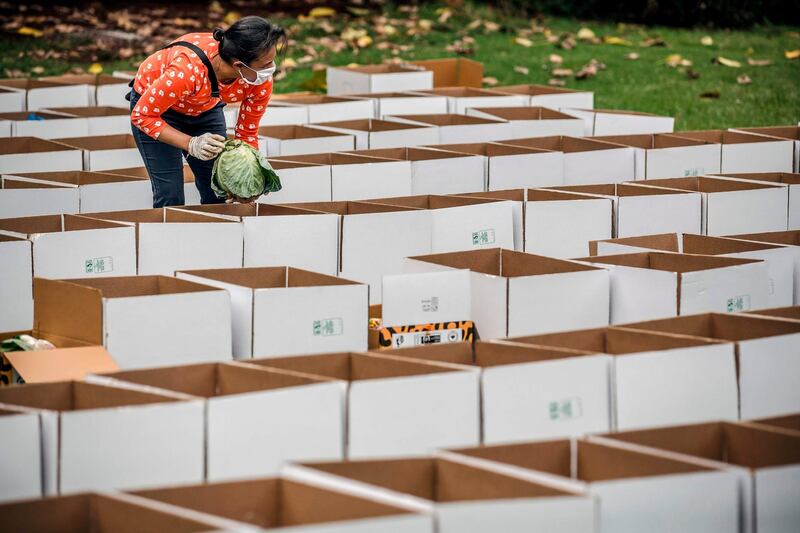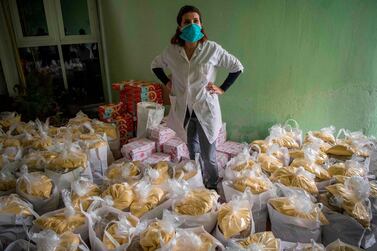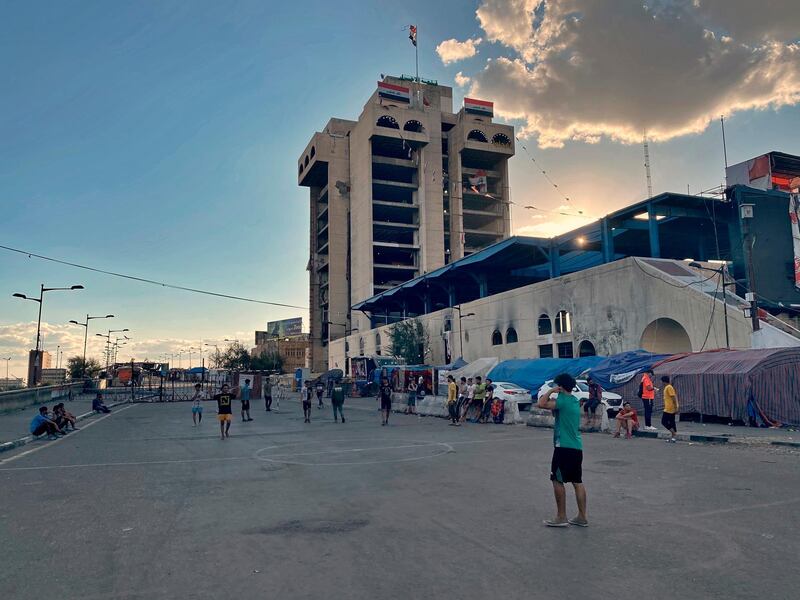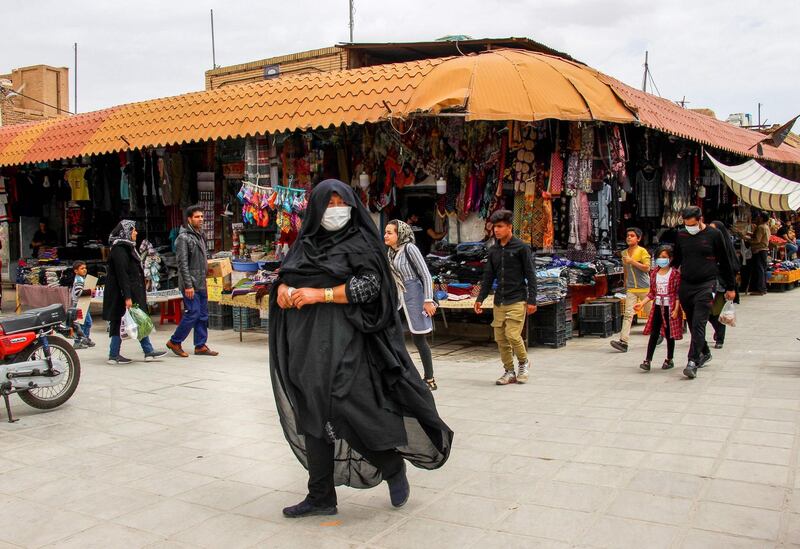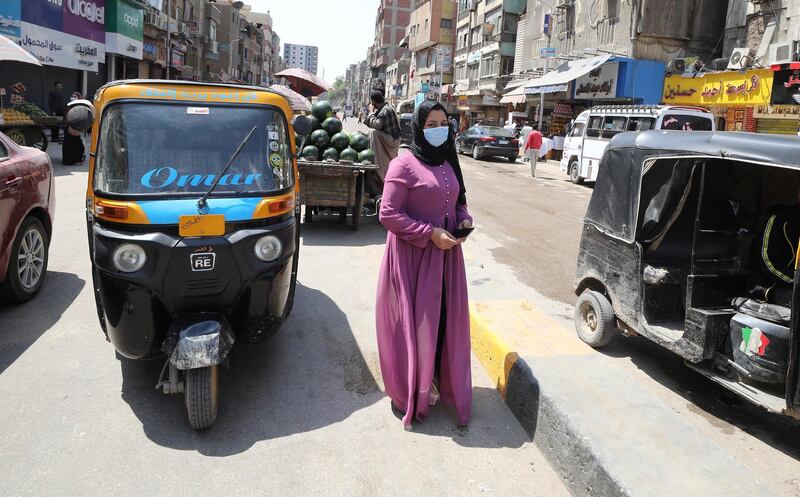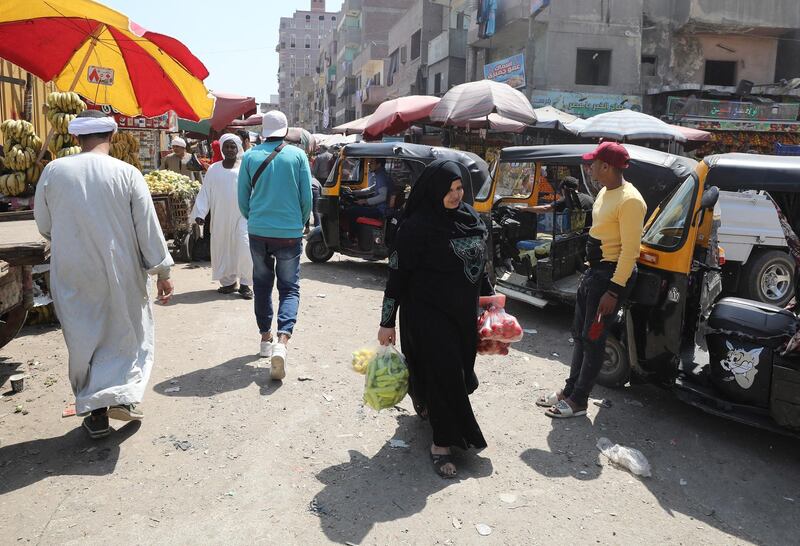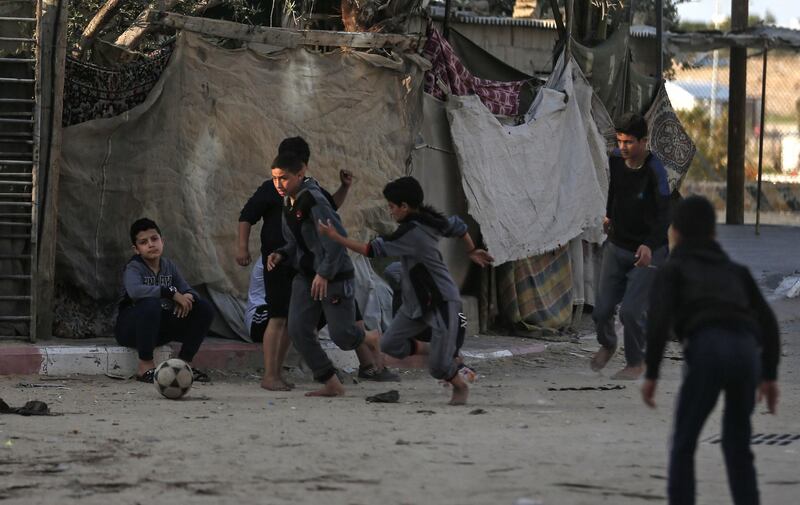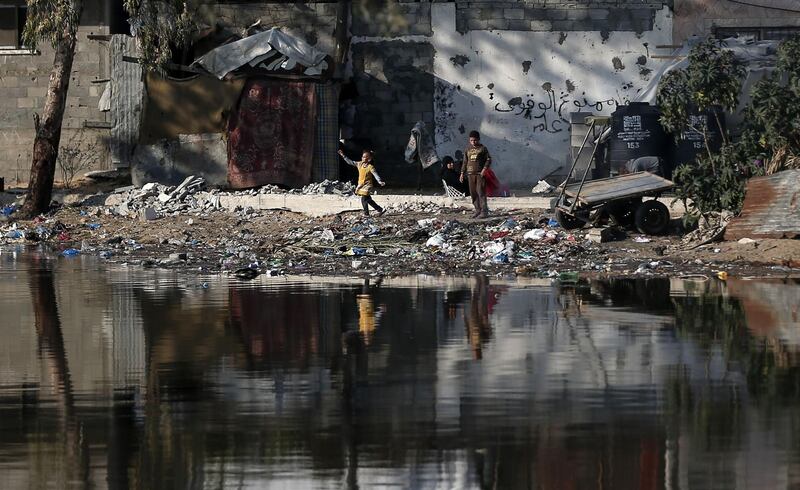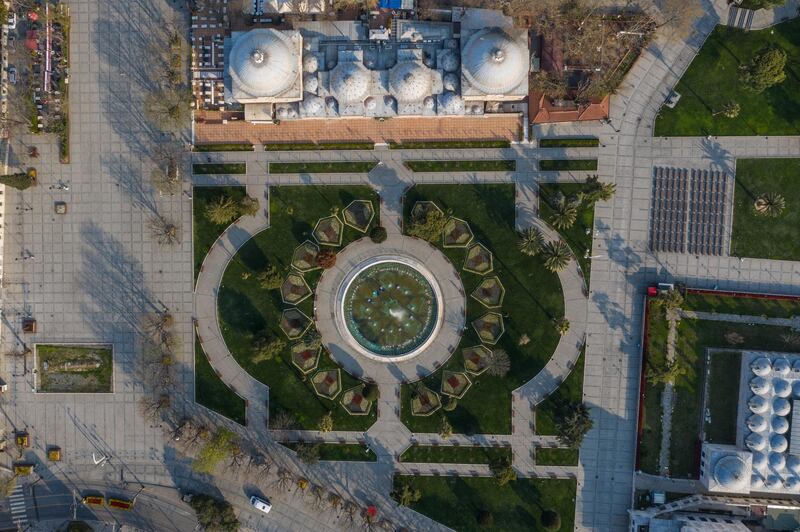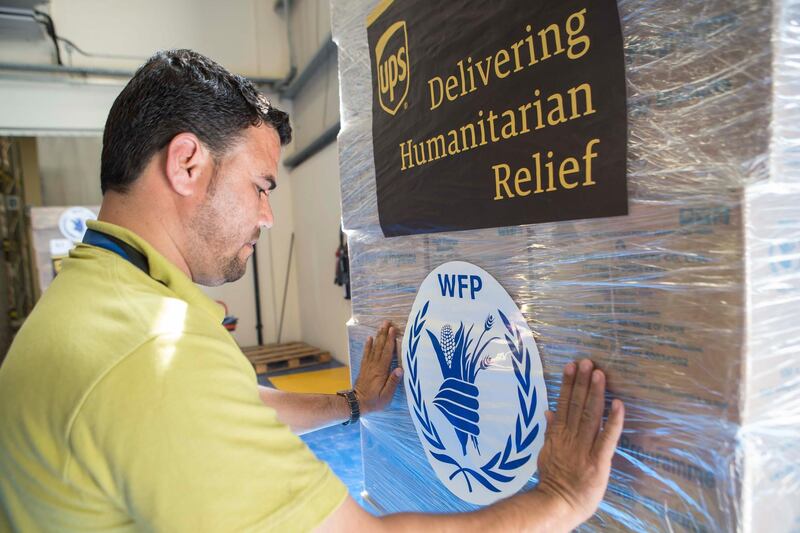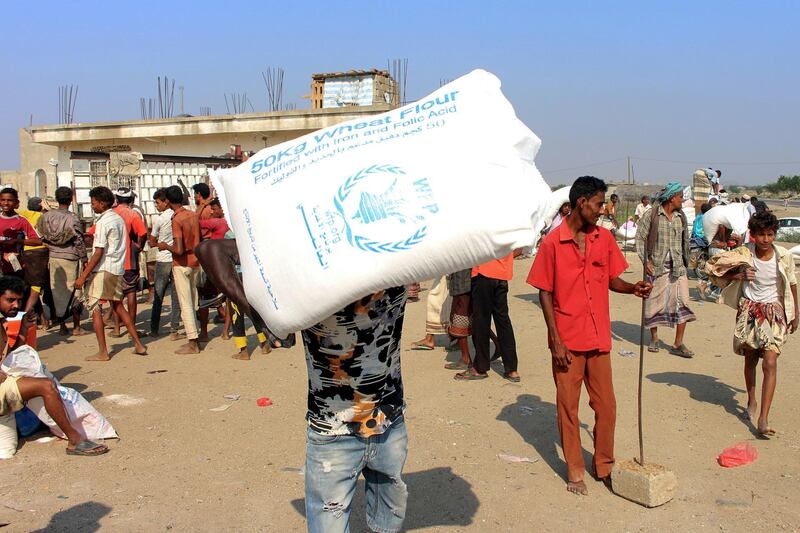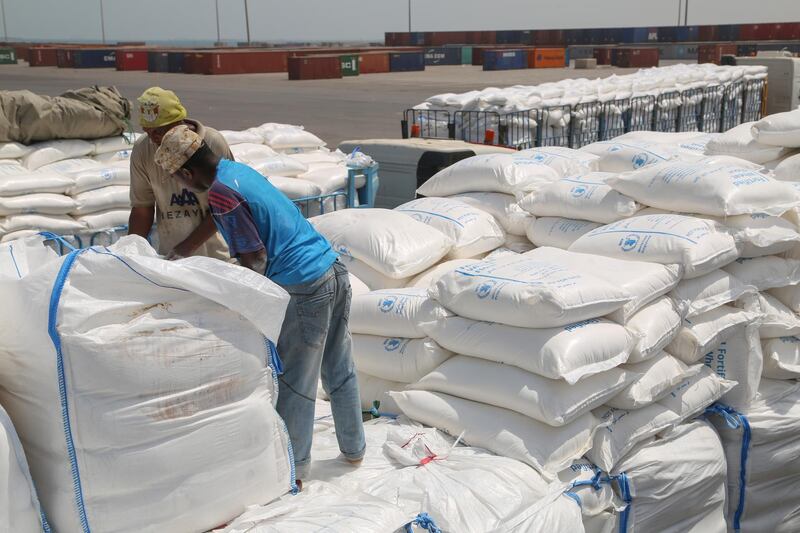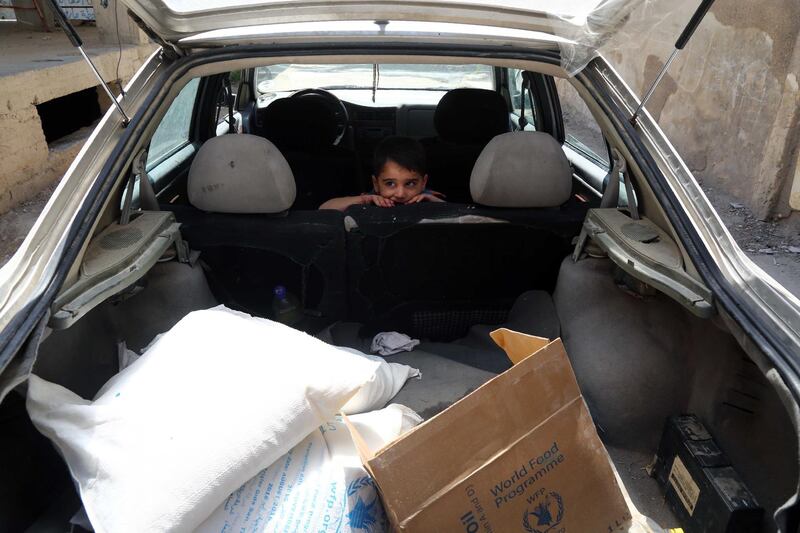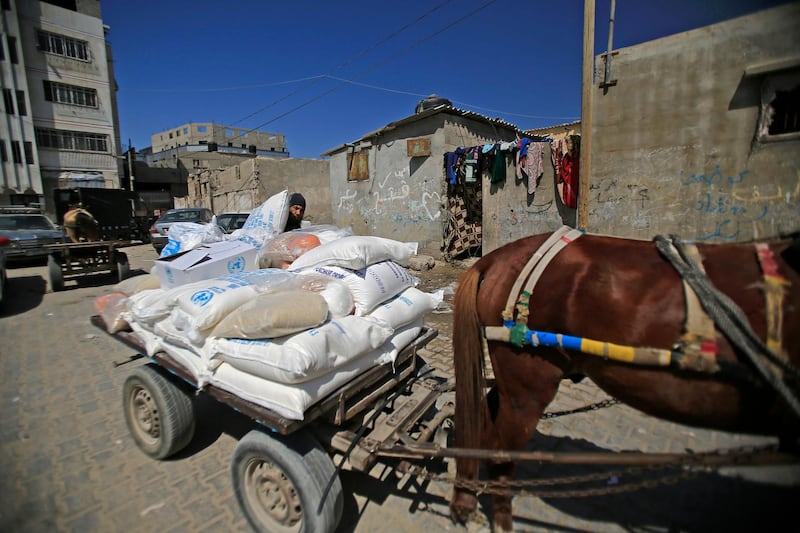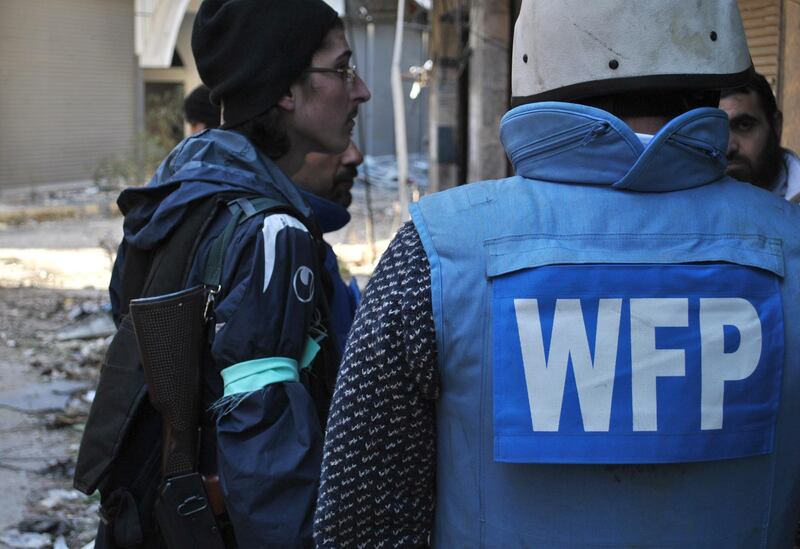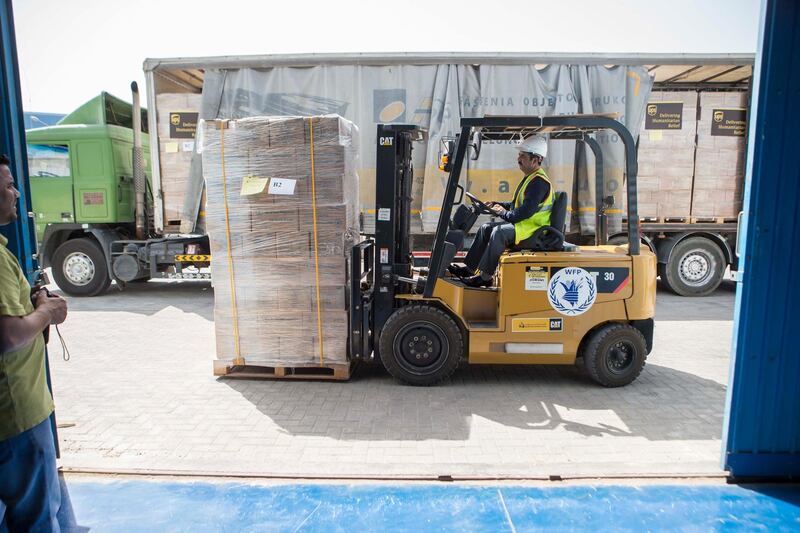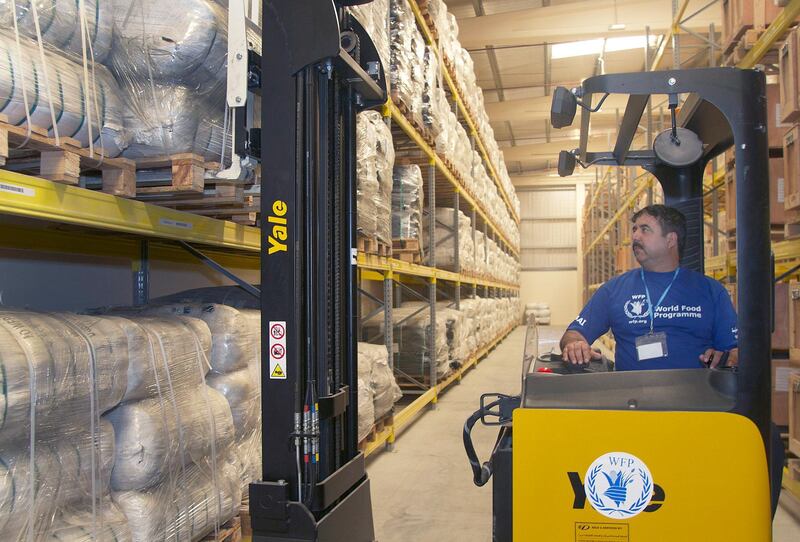The notion of our vast world as a "global village" has perhaps never before had such resonance. What began as a localised outbreak of a novel virus, has in mere weeks become a pandemic of unprecedented proportions.
Covid-19 is the very definition of a crisis in a globalised world; its spread rapid and wide-reaching, its impacts profound and interconnected.
Countries are containing the virus by testing, treating and tracing, by limiting travel and imposing quarantine measures. But it continues onwards like a wave – one that may crash on those least able to withstand it.
Masks, goggles & personal protective equipment. These are just some of the medical supplies that my colleagues are airlifting to vulnerable countries on behalf of our partners @WHO @UNICEF
— David Beasley (@WFPChief) April 9, 2020
Check out these great photos to see the @WFP team in action ➡️
As I write, 210 countries have reported cases, over 128,000 people have lost their lives, infections have tipped 2 million, societies are in turmoil and economies at a standstill.
Such an extraordinary challenge requires an extraordinary response; decisive, bold, and – above all – collective and grounded in solidarity with the whole of humanity as we weather this storm together.
Covid-19 is the defining public health crisis of our time, but it is fast becoming much more. By challenging every country and community it impacts, it has the potential to create devastating social, economic and political consequences that may leave deep scars.
In a previous column, I explained why when food security is threatened, so too are stability and prosperity. As the full effect of Covid-19 across the world unfolds, we are truly in uncharted territory.
We have already witnessed how it is blind to national borders, race, ethnicity or economic strength.
We have seen how the world’s most developed nations, with unrivalled capacities to endure the challenge and safeguard domestic populations, have struggled to confront it.
Although the impact of the pandemic has only just begun to reveal itself in the world’s so-called “developing” nations, there is good reason to believe that they will be disproportionately affected.
Already dealing with economic shocks, conflict and the effects of climate change, these countries will have to face devastating consequences. Consequences that will impact all aspects of life – starting with food insecurity, as the most basic of needs.
Packing Chickpeas before distribution to families in #Syria
— WFP MENA (@WFP_MENA) April 11, 2020
Chickpeas, a staple part of many Middle Eastern cuisines, are rich in nutrients, providing dense content reaching up to 20% of your daily needs of proteins, fibres & other dietary minerals#WFPFoodFacts #UNitedWeEat pic.twitter.com/IYBZVx7FW9
Entering 2020, the number of hungry people around the world was already on the rise.
Today, over 800 million people face chronic undernourishment and 100 million are in need of life-saving food assistance.
Covid-19 risks undermining efforts to reverse this trend.
Why?
To begin, communities in the “developing” world tend to live in closer proximity to one another, complicating social distancing and massively increasing the risk of spread.
A higher proportion of people suffer from pre-existing health problems that render them more vulnerable to the disease.
As everywhere, stay-at-home measures and other necessary restrictions will mean lost production, lost employment and lost income.
But for people already living hand-to-mouth and with limited access to savings, credit or the already-overstretched social safety net programmes, this can be the difference between securing a meal and going hungry.
Governments in these countries cannot replicate the stimulus responses of their "developed" counterparts. They face fewer and harder choices when confronted with the pandemic and its multitude of impacts. Health systems are weaker and ill prepared for a crisis of this kind.
Economies depend largely on imports of staple foods to ensure the food security of their populations. Already, Covid-19 related containment measures have started to make it more challenging to move food from the world’s breadbaskets to where it is consumed.
If additional restrictions are imposed on exports and major supply routes close or slow down, food may not reach where it is needed and prices may rise.
We saw during the 2007-2008 global financial crisis how inflation can hit developing countries and their populations hardest; particularly as poor families spend a higher proportion of their income on food.
Global food markets are still well supplied and prices remain stable as I write this. We know that the world has long produced more than enough food to feed its almost eight billion inhabitants. What happens next depends in large measure on how the world responds.
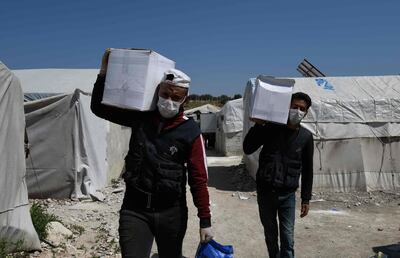
Many before me have observed that Covid-19 may be the greatest test to humanity since World War Two, but it is a test of a very different nature.
While nations of the world have long focused on protecting themselves against known enemies, we may have neglected to prepare for an invisible adversary to all of humankind.
If nothing else, this pandemic should remind us that we are all equal as citizens of the world and this is why any effort to confront its human and economic costs must be truly global in design and application.
It may be hard to think of the world at this time when so many of us are feeling the immediate, painful impact of the pandemic. But think of the world we must. For, as long as Covid-19 rages somewhere it is a threat everywhere.
As long as people suffer its direct and indirect consequences in the world's most vulnerable corners, those consequences will affect all of us. The crisis knows no borders, neither should the response.
Here, at the United Nations World Food Programme (WFP) we are working tirelessly to do our part. We are closely monitoring trends in food security, health access and markets around the world and are sharing that information widely to support global decision-making.
As the logistics backbone of the humanitarian community, we are rolling out essential support services so that humanitarian and health workers on the frontlines of the Covid-19 pandemic are able to stay and deliver.
We are establishing humanitarian hubs to facilitate the dispatch of essential cargo, setting up air transport links, contracting charter vessels and providing passenger air and Medevac services for humanitarian and health staff.
Right here in the UAE – where WFP is generously hosted at Dubai's International Humanitarian City and runs the biggest of its six United Nations humanitarian response depots where it procures, stores and rapidly transports emergency supplies on behalf of the humanitarian community – we are readying our support. But we urgently need $350 million to do this.
We are working to sustain – and scale-up if necessary – our vital food assistance programmes which already offer a lifeline to close to 100 million vulnerable people every year.
To do so, we are adapting our delivery mechanisms in the face of border closures, travel restrictions and supply chain complexities never seen before. It is a sobering reality that if the critical work of WFP cannot be carried out – if our supply chain breaks down or we do not receive the $1.9 billion we require to sustain operations for three months – some 150,000 people could lose their lives every day.
Ten short years away from 2030, the world has suffered a major setback in its quest to achieve the Sustainable Development Goals. Goals that were designed to embody a universally shared vision of a safe, just and sustainable world in which the whole of humanity thrives. At this critical moment in history, let us stand together again in this same spirit.
Many have remarked that life may never be the same after Covid-19 but I believe that by working together in solidarity we can build our "global village" back better.
Mageed Yahia is the Director of the United Nations World Food Programme Office in UAE and regional representative of the WFP in GCC
